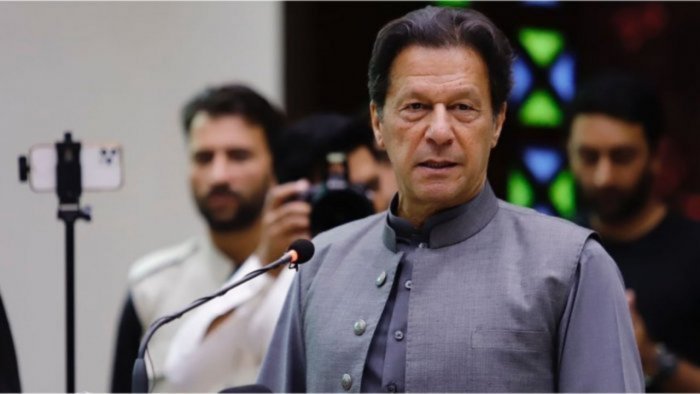The US State Department encouraged the Pakistani government in a March 7, 2022, meeting to remove Imran Khan as the prime minister over his perceived neutrality regarding the Russian invasion of Ukraine, reported by online American nonprofit news organization “The Intercept” as per a classified Pakistani government document obtained.
The document sheds light on a meeting held on March 7, 2022, between the Pakistani ambassador to the United States and two State Department officials, where the subject of Khan’s stance on the Ukraine conflict was discussed.
The meeting has been a subject of intense speculation in Pakistan, particularly as Khan’s supporters and opponents, including both military and civilian factions, vied for influence. The power struggle intensified when Khan was sentenced to three years in prison on corruption charges, effectively preventing him from participating in upcoming elections.
The leaked cable, known internally as a “cypher,” reveals that the U.S. State Department applied both incentives and pressure to advocate for Khan’s removal. The document cites Assistant Secretary of State for the Bureau of South and Central Asian Affairs, Donald Lu, who conveyed Washington’s dissatisfaction with Khan’s stance on the Ukraine crisis. Lu indicated that a successful no-confidence vote against Khan would result in the US forgiving his position on the Russia visit, which had raised concerns.
The diplomatic cable outlines how Imran Khan foreign policy decisions were viewed as inconsistent with the US interests and those of its European allies. The cable quotes Lu’s statement about the potential consequences for Pakistan’s relationship with Western nations if the situation wasn’t resolved, suggesting that Khan could face isolation on the international stage.
The cable also delves into the ambassador’s frustration over perceived US disengagement and a lack of reciprocation in the bilateral relationship. The discussions concluded with hopes that the Russia-Ukraine situation would not severely damage their ties, although Lu acknowledged some harm had been done.
The Intercept has taken extensive measures to authenticate the document. However, independent verification from Pakistani government sources was unfeasible due to security concerns. The US State Department categorically denied allegations of interference in Pakistan’s internal leadership matters.
Experts suggest that while Imran Khan fate wasn’t entirely sealed during the meeting, the US message was clear: his removal from power would improve relations with Washington. The document, while unverifiable by external sources, offers insight into the complex dynamics between Pakistan and the US during a time of geopolitical tension.
The Intercept’s findings align with prior reporting in the Pakistani newspaper Dawn and corroborate details in the leaked cable. The cable’s contents also correspond with subsequent events, as US-Pakistan relations improved after Khan’s removal, as indicated during the diplomatic meeting.


